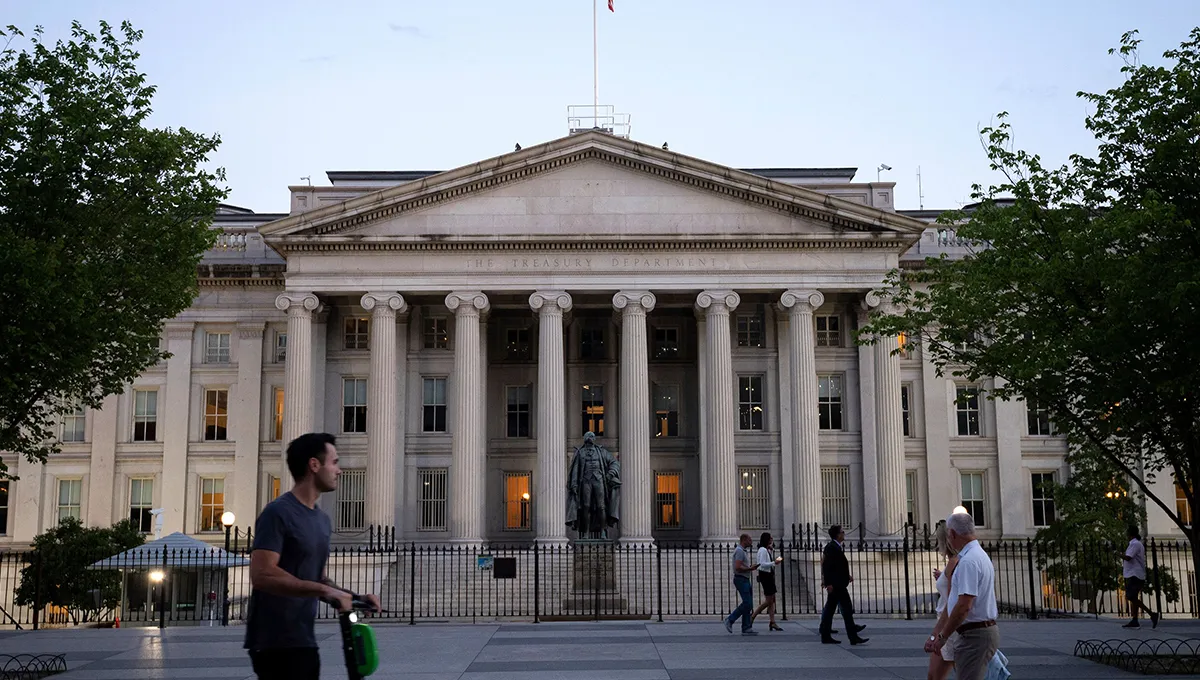White House Blames GOP After Fitch Downgrades U.S. Credit Rating
In a shocking turn of occasions, Fitch Rankings, one of the main credit score rating businesses, downgraded the USA’s credit score score, sparking a wave of discussions and worries. The White House rapidly spoke back, pointing fingers at the GOP for their function within the scenario. This article pursues to delve into the reasons at the back of the credit score rating downgrade, the results it might have on the U.S. Economic system, and the heated blame recreation between the White House and the Republican party.
The credit score Downgrade
The first factor we want to recognize is what a credit score downgrade includes. Fitch Ratings lowered the U.S. Credit score from its formerly pristine AAA score to AA+, signaling that they’ve less self-assurance within the country’s capability to fulfill its economic duties. This choice comes amidst growing issues about the U.S. Debt burden, political instability, and economically demanding situations.
Factors Leading to the Downgrade
Escalating National Debt
One of the key factors contributing to the credit score rating downgrade is the alarming boom within the countrywide debt. The U.S. has been grappling with substantial budget deficits for years, and the COVID-19 pandemic further exacerbated the situation. Fitch expresses worries that the debt-to-GDP ratio has reached regarding tiers, putting the financial system at chance.
See also: Robin Roberts Leaving GMA
Political Gridlock
Every other significant thing is the political gridlock that has plagued Washington these days. With a divided government and parties deeply entrenched in their ideologies, passing crucial economic policies and reforms becomes an uphill battle. Fitch highlights the inability to address economic challenges due to the lack of bipartisan cooperation as a major concern.
Uncertainty Surrounding Fiscal Policies
The lack of readability and stability in economic policies additionally played a function in the credit score downgrade. Frequent debates and disagreements over budgetary decisions create uncertainty for investors and businesses, hindering long-term planning and investment.
The White House’s Accusations
In response to the downgrade, the White residence was brief to factor fingers at the GOP, attributing the situation to their obstructionist methods and unwillingness to compromise. The administration argues that the GOP’s refusal to help crucial economic reforms has hindered the authorities’ ability to cope with the underlying problems and stabilize the economy.
GOP’s Counterarguments
Unsurprisingly, the Republican Party has fiercely contested the blame laid upon them by the White House. They argue that the Democratic-led government’s excessive spending and push for progressive policies have contributed significantly to the escalating national debt. Moreover, they accuse the Democrats of undermining enterprise confidence and hindering the monetary boom with burdensome guidelines.
Implications for the U.S. Economy
Higher Borrowing Costs
The faster cost of borrowing for the U.S. Government is one of the immediate effects of a credit score rating downgrade. With a lower credit score rating, investors demand better yields to atone for the perceived better threat, mainly to higher interest prices on authorities’ bonds.
Impact on Investments
The downgrade also can have a domino impact on specific sectors of the economic system. As the cost of government borrowing rises, it can result in reduced private investment and economic slowdown.
Currency Depreciation
A credit score rating downgrade can place downward pressure on the U.S. Dollar. As investors search for higher returns someplace else due to accelerated danger, the price of the dollar may additionally depreciate, impacting global exchange and investment.
Conclusion
The Fitch credit rating downgrade has sounded an alarm, highlighting the pressing need for bipartisan efforts to cope with the U.S.’s economic challenges. The White House and the GOP have to set aside their differences and work together to put in force responsible financial guidelines, reduce the country-wide debt, and make sure financial stability for the state’s future.
See More: White House blames GOP after Fitch downgrades U.S. credit rating
People also ask FAQs
What’s a credit rating downgrade?
- A credit rating downgrade is a selection via a credit score organization to lower a rustic’s or organization’s credit score, indicating a reduced level of confidence in their ability to meet economic responsibilities.
How does the credit score downgrade affect the U.S. Economic system?
- The credit score downgrade can result in higher borrowing costs, decreased investments, and capability foreign money depreciation, which can negatively impact the U.S. Financial system.
Is the credit score downgrade reversible?
- Yes, a credit score downgrade is reversible. By implementing sound economic rules and demonstrating a commitment to financial responsibility, the U.S. Can regain its higher credit score score.
Which other international locations have faced credit score downgrades inside the beyond?
- Numerous countries, consisting of Japan, Spain, and Italy, have experienced credit score downgrades because of numerous financial and political factors.











